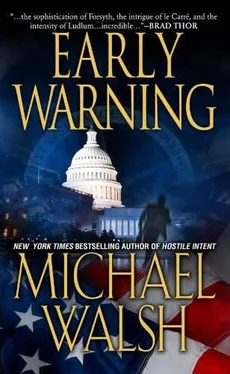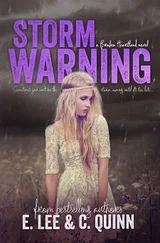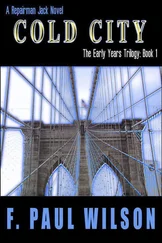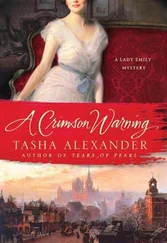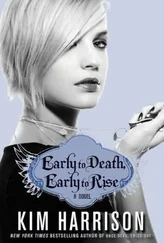Michael Walsh - Early Warning
Здесь есть возможность читать онлайн «Michael Walsh - Early Warning» весь текст электронной книги совершенно бесплатно (целиком полную версию без сокращений). В некоторых случаях можно слушать аудио, скачать через торрент в формате fb2 и присутствует краткое содержание. Жанр: Триллер, на английском языке. Описание произведения, (предисловие) а так же отзывы посетителей доступны на портале библиотеки ЛибКат.
- Название:Early Warning
- Автор:
- Жанр:
- Год:неизвестен
- ISBN:нет данных
- Рейтинг книги:3 / 5. Голосов: 1
-
Избранное:Добавить в избранное
- Отзывы:
-
Ваша оценка:
- 60
- 1
- 2
- 3
- 4
- 5
Early Warning: краткое содержание, описание и аннотация
Предлагаем к чтению аннотацию, описание, краткое содержание или предисловие (зависит от того, что написал сам автор книги «Early Warning»). Если вы не нашли необходимую информацию о книге — напишите в комментариях, мы постараемся отыскать её.
Early Warning — читать онлайн бесплатно полную книгу (весь текст) целиком
Ниже представлен текст книги, разбитый по страницам. Система сохранения места последней прочитанной страницы, позволяет с удобством читать онлайн бесплатно книгу «Early Warning», без необходимости каждый раз заново искать на чём Вы остановились. Поставьте закладку, и сможете в любой момент перейти на страницу, на которой закончили чтение.
Интервал:
Закладка:
He looked at the assemblage again, and again. Waited for it to fall into place. Waited for it to assume shape and form and meaning. Waited for it to reveal itself, to expose itself, naked, to his gaze. It was almost erotic.
Suddenly, he saw it. What a fool he had been. What fools they had all been.
Love. The Dancing Men were about love, the kind of mad love that careers out of the past to curse the present. Have His Carcase was about the Playfair cipher-hell, it was practically a “how-to” guide to the damn thing-but it was also a story of discovered lovers. And who was more emblematic of the 19th century than the tortured, malevolent genius of Edgar Allan Poe?
Line them up: prelude, theme, development, deceptive cadence (the Beale cipher, although it too must have resonance), climax, and coda. And what was the climax?
Dorabella.
It wasn’t about sight at all. It was about sound.
It was all about Elgar and Dorabella.
This was what the culture got and deserved for ignoring one of its principal senses-hearing-in favor of its default mode, sight. What if the squiggles really were what some had suggested, just a bunch of jocular shit, a goof by an older man impossibly in love with a younger woman, who had hidden his real message, his declaration of love inside the music?
Knowing that, even in the 19th century, when the standard of education was infinitely higher than it was today, Elgar might have counted on the once-remove that music gave him. After all, he lived in the days of the fictional My-croft Holmes, Sherlock’s arguably smarter elder brother, who often was the British government when he was not successfully masquerading as a civil servant. At the apogee of British society, in the days before credentialism, that quintessentially American disease of bureaucrats and apparatchiks, Sir Edward would have had a panoply of cultural and linguistic references available to him. No wonder it was in this period that Britain reached its zenith; culturally confident, a synthesis of classical civilization and Anglo-Saxon ferocity, able to subjugate the native Celts and harness their scientific and literary genius in the service of the Empire.
Morse code: I am. Am I? A phrase and then the reverse. A yearning, strange and ineffable. Hesitant, coy and coquettish by turns, masterful and manly by others. Everyone assumed that the work was as Elgar said: portraits of various friends. Program music, the scholars called it.
But what if that, too, was all misdirection? What if the central enigma of the Enigma Variations wasn’t so enigmatic after all, but hiding right there in plain sight? There, hidden away in one of the lesser variations-not the magisterial “Nimrod,” which had come, like the Pomp and Circumstance March No. 1, to symbolize the very spirit of Victorian Britain itself, but the one that immediately followed it.
The “Dorabella” variation.
The squiggly “eeees.”
The squiggly, ornamented melodic line of the “Dorabella” Variation, supposedly meant to express the girl’s slight hesitancy in her speech patterns. But listen closer: the variation does not simply depict one person, but two. The strings twitter, but the woodwinds answer.
Dora. Bella. Dora the Beautiful.
And she is having a conversation with the composer.
It was all coming together. The wife, the flighty and often amusing friends. All building on the Morse Code, on the unheard, unspoken, unarticulated, unwritten “real” theme as the music drove toward to the titanic “Nimrod” variation and then…the whole point of the piece, carefully and calculatedly inserted precisely at the point where the audience would still be in thrall to the majesty of the Ninth Variation and never suspect that the real declaration of love would come, dramatically, where they were least expecting it.
Match it up:
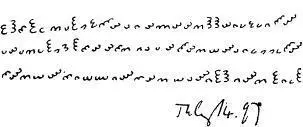
There it was, staring at him, plainly. The contrary motion of the great tune, the unanswered question of I am. Am I? The inverse, the mirror image. The counterpoint of existence, the yin and the yang, the harmonic balance: one door closes, another door opens. One man dies, another child is born. Perpetual contrary motion.
Look at it.
No: listen to it.
Read it. Not the way one would usually “read,” but the way a musician would read:
Hearing it as he-or, in this case, she-read.
It wasn’t about a code at all.
It was the unheard theme of the Enigma Variations, written out in Elgar’s private shorthand two years before he composed his first masterpiece, and communicated to the woman he loved but whom he could not have. He had to hide his affections-after all, he was married, and he and his wife had just been on a visit to Dora, her father, and her step-mother-and so he disguised them.
Not only disguised them. Gave them voice. Orchestrated them. And then let the world hear them.
It was about Love.
In his excitement, Major Atwater leaped to his feet and began to sing. Then he stopped, caught up short-
Love was followed by the Double Cross: XX. The symbol of Death.
Not substitution ciphers-substitutions. Symbols of symbols. Telling a tale of love declared and love frustrated. Of love unrequited and love confounded.
“We are discovered. Save Yourself.”
It wasn’t about Love after all.
It was about Revenge.
CHAPTER THIRTY-FOUR
St. Clare’s Hospital
“It’s St. Vincent’s now, officer,” the admitting specialist had said last night, “for however long we stay in business”-but Lannie wasn’t in the mood for a history lesson. He’d gotten Sid immediate medical attention. As it turned out, Sid’s leg was broken in four places, but otherwise he was going to be okay. The doctors had shot him full of painkillers and done the best they could with the leg, but it was going to be a while, if ever, before he could resume his alternate career as shortstop for the New York Yankees.
“What’s the score?” asked Sid, wide-awake, but full of more dope than Lenny Bruce.
“We’re winning,” Lannie lied.
“Correction,” came a voice behind them. “We’re going to win, but right now we are at the mercy of my least favorite people in the world.”
Lannie and Sid turned to see Capt. Byrne stepping into Sid’s room. His shoulder was bandaged and he was a little pale, but otherwise he appeared pretty much his old nail-chewing self. “In the old days,” he said, “this was the place they brought all the gangsters, after they’d been ventilated in some dustup or other in Hell’s Kitchen. They even brought the great Owney Madden here in 1912, after he’d gotten himself shot up by the Hudson Dusters. Filled him full of lead, eleven shots in all, and still the son of a bitch didn’t die.” Byrne pulled back the covers to take a look at Sid, and smiled. “You’ve got nowhere near eleven rounds in you, boyo.”
Sid smiled weakly. Why did it have to be him? Everybody always made fun of him, the Jewish kid, supposedly the smart one, but not the tough one. All he’d wanted was a chance to show the boss that he was as tough and as brave as anyone in the CTU. And look at him…
“And show us you did, Sidney,” said Byrne. It was uncanny how the man could read minds. That’s what made them all love him. Sure, he was a tough, politically incorrect, mean SOB, but then so was his uncle, Sy Sheinberg, who had practically been a father to Byrne. “Think Yiddish, dress British,” had been the motto of Sy’s generation, but he had turned it on its head: “Yiddish think, Irish drink,” was his version, and it was the way he had lived, right up to the moment he died. How he had died, and what combination of courage and desperation had driven him to, essentially, conduct his own autopsy on himself while he was still alive, Sid could not image. And Frankie had never talked about it, even though he had been the one who had found him, bottle in one hand, scalpel in the other. “You’ll be out of here in no time.”
Читать дальшеИнтервал:
Закладка:
Похожие книги на «Early Warning»
Представляем Вашему вниманию похожие книги на «Early Warning» списком для выбора. Мы отобрали схожую по названию и смыслу литературу в надежде предоставить читателям больше вариантов отыскать новые, интересные, ещё непрочитанные произведения.
Обсуждение, отзывы о книге «Early Warning» и просто собственные мнения читателей. Оставьте ваши комментарии, напишите, что Вы думаете о произведении, его смысле или главных героях. Укажите что конкретно понравилось, а что нет, и почему Вы так считаете.
